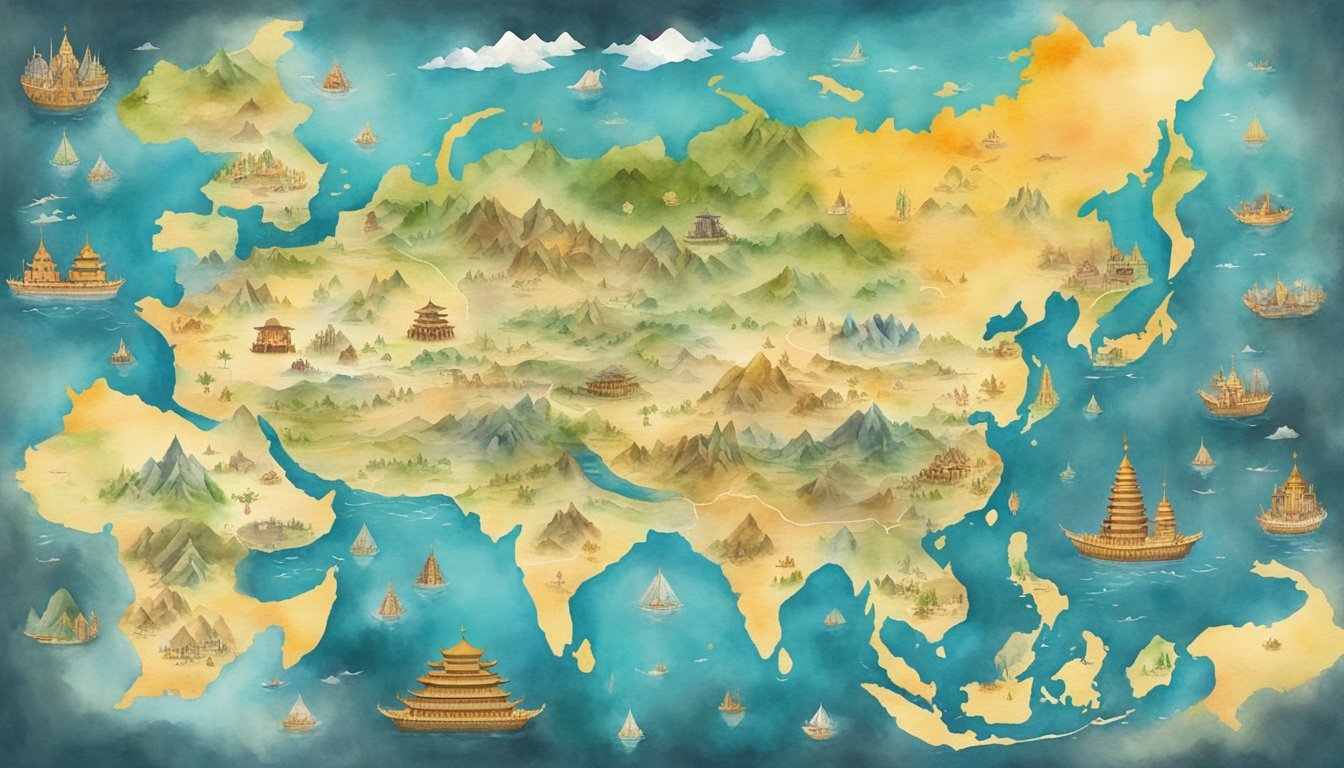Origins and Proliferation of Genghis Khan’s Lineage
Genghis Khan’s lineage is a subject that has intrigued both historians and geneticists alike, revealing a story of conquest, power, and the significant spread of genes throughout different populations.
Historical Context of Genghis Khan’s Conquests
The tale of Genghis Khan’s lineage begins with his establishment as the leader of the Mongol Empire in the early 13th century. Born as Temujin, he later became known as Genghis Khan, the ‘universal ruler’. By uniting the nomadic tribes of Mongolia, he forged one of the largest empires the world has ever seen, stretching from China to Central Asia and beyond. His conquests paved the way for his descendants to rule over various regions, including the Yuan Dynasty in China, the Ilkhanate in Iran, and the Golden Horde in Russia.
Genghis Khan’s impact on history extended far beyond the battlefield. Strategic marriages were commonly used to build alliances and consolidate power within the expanding Mongol Empire. His sons, including Jochi, Chagatai, Ögedei, and Tolui, played significant roles in governing the empire’s vast territories. Ögedei succeeded him as the Great Khan, while Tolui’s son, Kublai Khan, became a renowned ruler of the Yuan Dynasty.
Genetic Expansion and the Role of Marriage
The genetic influence of Genghis Khan is perhaps most strikingly evident in the Y-chromosomal lineage identified in a significant portion of the male population from previously Mongol-ruled territories. Research suggests that the propensity for diverse Mongolian cavalry to take numerous wives, concubines, and establish extensive households has led to a widespread genetic legacy. This includes the “Genghis Khan effect,” a phenomenon where intense natural and social selection favored the Y-chromosome haplotype present in Genghis Khan and his relatives.
Marriage played a complex role in the expansion of Genghis Khan’s genetic lineage. Mongol women, often part of arranged marriages for political alliances, carried the Borjigin clan’s lineage across various territories. Some descendants became sultans, warlords, and important figures in societies along the Silk Road and beyond, further diversifying the genetic variation among human populations.
The influence of Genghis Khan’s descendants is observed across many societies and historical events. From the establishment of trade and political stability along the Silk Road to significant contributions to fitting novel genetic variation into the broader central Asian gene pool, the descendants of Genghis Khan have left an indelible mark on world history.
Cultural and DNA Impact on Modern Populations

Genghis Khan’s legacy extends far beyond his vast empire, influencing modern populations both culturally and genetically. The DNA evidence and cultural impact of his rule reveal significant insights into contemporary human diversity.
DNA Evidence and Contemporary Research
Scientists have traced a remarkable Y-chromosomal lineage to Genghis Khan and his male relatives, which has been found in approximately 16 million living men. Researchers like Chris Tyler-Smith and Mark Jobling have contributed significantly to this field, providing evidence that a substantial number of individuals across Asia carry genetic markers that can be linked back to the Mongol Empire. This lineage showcases a striking instance of a single genetic mutation proliferating widely through human populations, largely attributed to the extensive trade networks and conquests of the Mongols. The Y-chromosomal lineage associated with Genghis Khan and his relatives suggests a high social prestige afforded to his family, known as the Golden Family, which likely facilitated the spread of their genetic material.
Cultural Influence and Historical Legacy
The Mongol Empire’s expansion across Mongolia, China, Central Asia, Eastern Europe, and Siberia brought immense cultural exchange and diversity, shaping the regions’ historical path. The Mongol horde, under Khan’s command, not only impregnated the local populations but also established trade routes that fostered the exchange of ideas, technologies, and culture. Cities like Samarkand thrived under Mongol rule, becoming epicenters for knowledge and trade. Khan’s descendants, such as those that ruled the Tatar state, continued to impact the cultural landscapes of their territories. Descendants not only in Mongolia but as far as Eastern Europe and even Japan hold a connection to this past, illustrating the wide-reaching effects of the Mongol Empire’s dominance. The mixture of cultural practices and the insertion of Mongolian traditions into local customs echo through the ages, influencing societies long after the fall of the empire.

